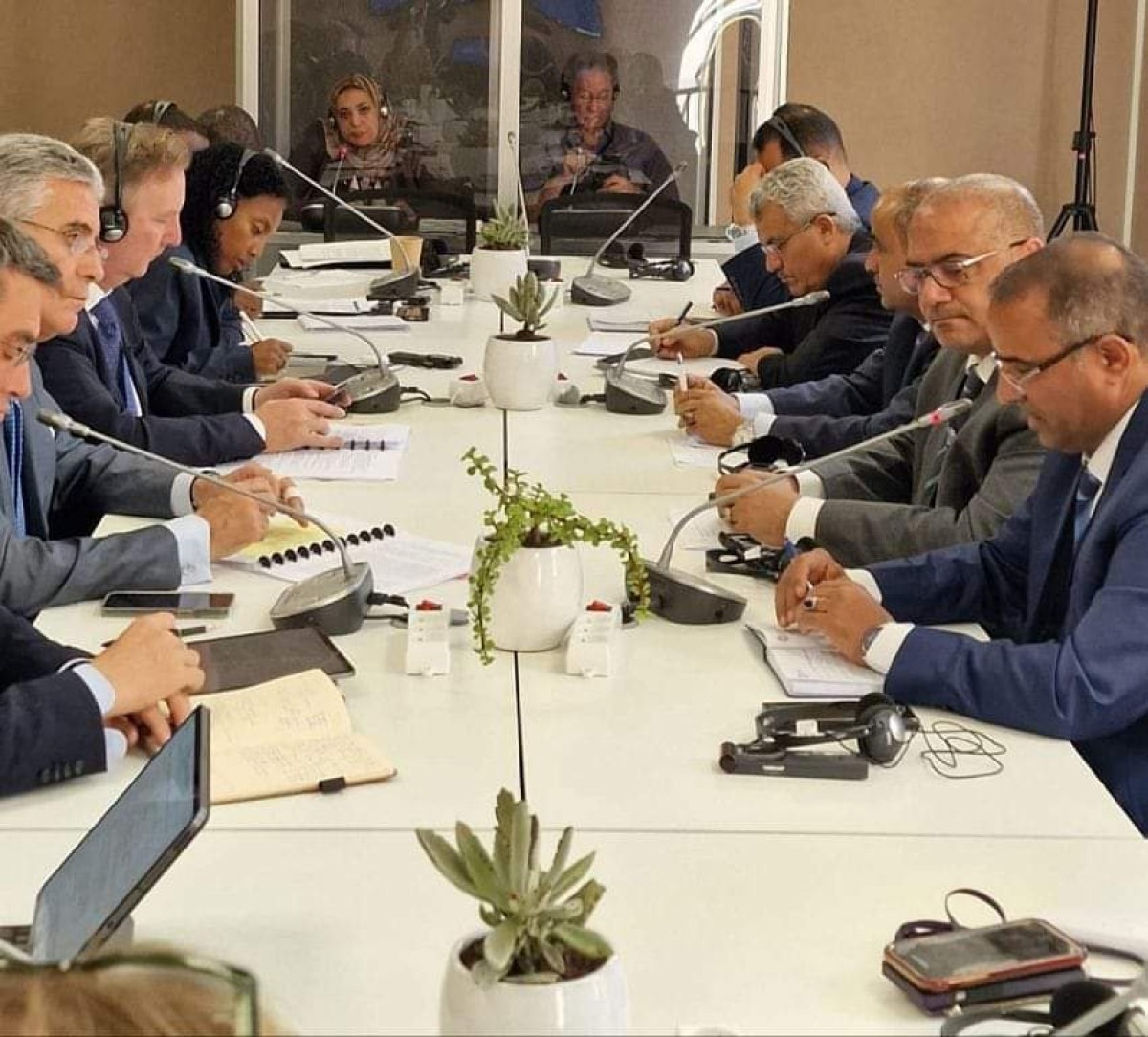Yemeni government officials meet with the Vice President of the World Bank for the Middle East and North Africa


A meeting held in the Moroccan city of Marrakesh today, which included the Ministers of Planning and International Cooperation, Dr. Waed Badib, Minister of Finance, Salem Ben Brik, Social Affairs and Labor, Dr. Mohamed Zaouri, and World Bank Vice President for the Middle East and North Africa, Farid Belhaj, discussed the challenges facing... Yemen in the fields of food and energy.
This came within the annual meetings of the World Bank Group and the International Monetary Fund, hosted by the city of Marrakesh, during the period from 9 to 15 October, with the participation of representatives of more than 189 countries around the world, and officials and experts from the Bank and the International Monetary Fund.
The Ministers of Planning, Finance and Social Affairs stressed the importance of the neutrality and independence of national institutions and that the government takes the necessary measures in the event of a violation of this. The Ministers of Planning and Finance also reviewed the economic situation and challenges in Yemen, the most important of which are the food and energy crises, which have been greatly exacerbated by the situation in the world. Especially the Russian-Ukrainian crisis... pointing out the need for a new approach from the World Bank Group to mobilize the private sector to address the food and energy crises.
While Minister Badib stressed the importance of the World Bank’s support for Yemen through the Bank’s portfolio in Yemen and relief and development programs, and the extent to which that support contributes to improving the lives of citizens. He stressed the importance of expanding the scope of the World Bank’s interventions in Yemen through a comprehensive approach that addresses the exceptional challenges. What the country is going through... reaffirming the government’s aspiration to expand the opening of the World Bank’s office in Aden, and the government’s readiness to provide the necessary facilities to facilitate the Bank’s interventions and contribute to achieving stability and development in the long term.
He praised the World Bank’s interventions in Yemen, pointing to Yemen’s need to increase the World Bank’s support for government institutions through programs to build and enhance institutional capacities and to ensure the involvement of more competent local institutions in implementing development projects in order to enhance the capabilities of those institutions and direct more of the cost. Employment from the United Nations to financing development in the country.
For his part, the Minister of Finance stressed the importance of the World Bank continuing to support and expand social protection projects in Yemen, including cash transfers, supporting comprehensive growth, and creating job opportunities to contribute to increasing the purchasing power of poor families.
In turn, the Vice President of the World Bank for the Middle East and North Africa region reaffirmed the World Bank’s keenness on the stability of Yemen, and the continuation of the Bank’s efforts to mobilize all available resources to support Yemen and participate in achieving the desired stability and economic recovery.